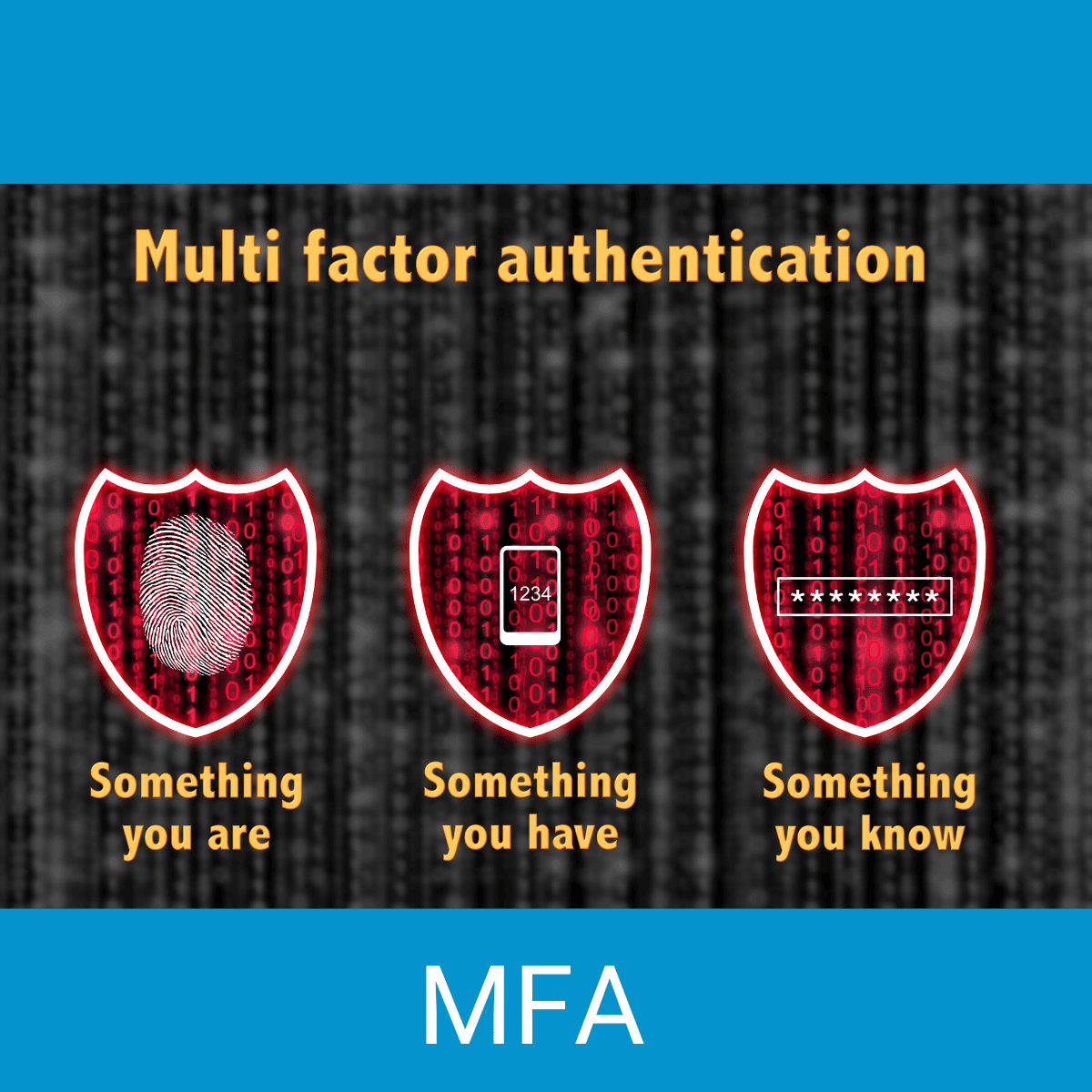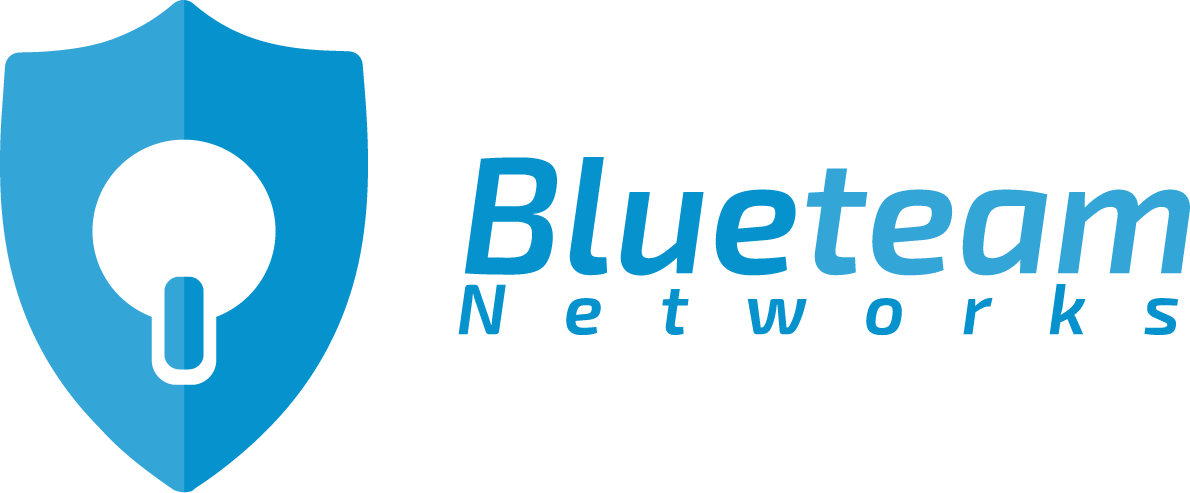4 min read
How Multifactor Authentication (MFA) Protects Your Business Against Cyber Threats
By: Jason Adams on Jun 16, 2022 9:40:54 AM

Cybercrime is on the rise and poses a significant threat to businesses of all sizes. Breaches in an organization’s security can lead to ransomware attacks, private data being stolen, and an organization’s credibility and reputation ruined forever.
In the current digital age, it’s more important than ever to do everything possible to protect against cyber threats, and one of the simplest ways to do so is with multifactor authentication.
What is multifactor authentication?
Multifactor authentication (MFA) is a type of security precaution that verifies a user’s identity via two or more authentication factors.
There are three categories of authentication factors:
- Knowledge: information that only the user knows, such as a PIN, password, or answer to a security question.
- Biometrics: a physical attribute unique to the user, such as a fingerprint, retinal scan, or facial scan.
- Possession: an item that only the user has, such as a token, smart card, or phone.
There are also geolocation authentication factors that check where a user is attempting access from and whether or not it makes sense that this is where the user is.
How can MFA protect an organization against cyber threats?
Your organization’s security can be significantly enhanced with something as simple as MFA. While things like passwords and usernames can be guessed or even stolen, MFA makes it more difficult for threat actors to have all of the necessary factors of authentication to access sensitive data in an organization and wreak havoc in your systems.
Here are some of the ways in which MFA can prevent cyber threats.
Strengthen current cybersecurity systems
An organization can have the best firewalls, anti-virus software, and anti-ransomware software, but they are as good as useless if anyone can access them.
MFA is another layer of security that helps ensure that only specific individuals can control the security measures that an organization has in place, thus keeping the security secure.
Helps remote workers work safely
Organizations need more advanced security measures to tackle the added security risks that come with remote work. These risks include:
- Attempting to access sensitive data over an unsecured Wi-Fi network
- Using a personal phone to access work data
- Leaving a work device somewhere insecure
- The possibility that a work device is stolen
Secure email access
Threat actors often use email access when perpetrating cybercrimes. MFA dramatically reduces the chances that cybercriminals can gain remote access to an organization via remote email access. You can learn more about how to protect communication and maintain compliance here.
Avoid unauthorized access to sensitive information
Information can be restricted to specific users in an organization that need access to perform their job with multifactor authentication. This way, the number of people who can access (and compromise) that data is limited. This is another way to keep sensitive data safe.
Read: How to Create a Human Firewall at Your Business and Why You Need One
Protect high-value targets
While MFA is important for all accounts in an organization, it’s especially important for administrative and executive accounts that will be high-value targets for cyberattacks. This is because these accounts contain sensitive information and the ability to make changes to a system that will give hackers access to the rest of the organization’s network.
Deter cyber exploits
Guessing or stealing someone’s username and password are not difficult enough to deter threat actors from potential cyber exploits. However, when MFA is used by an organization, in addition to other layers of security, it adds levels of complexity and difficulty for threat actors to gain fraudulent access to that organization. This added layer deters a large number of threat actors from cyber exploits.
Read:12 Ways to Optimize Security for Office 365
Give information on the person trying to gain access
MFA can give an organization the following information on the person that is trying to gain access to specific data:
- Who is trying to access the information
- Where the user is trying to access the data from
- Which device they are using
- How they are connecting, either with a private network or a public one
This can help an organization decide if it’s an authorized user attempting access or a threat actor. If it’s the latter, this information is priceless as it can help catch the culprit.
Read: The 5 Most Prevalent Types of Cyber Scams Aimed at Businesses
As a matter of fact, any business expecting to take out a Cyber Insurance Policy will be required to deploy MFA and other best practices before they can be insured.
Cybercrime is a massive threat to any size business in Central Ohio. MFA is an excellent way to create an extra barrier of protection for your organization. Get in touch with us today for more information, or to get multifactor authentication and other security measures in place to safeguard your business.
Recent Posts
How and Why Your Business Needs to Conduct a Cybersecurity Audit
When was the last time you conducted a comprehensive cybersecurity audit?
How a Password on the Dark Web Caused a Gas Shortage
Is the hacking of critical infrastructure like the Colonial Pipeline a sign of the times, or is it...
Social Phishing: What You Need to Know
Over the last two decades, phishing has transformed from a spam-like threat into a destructive...


